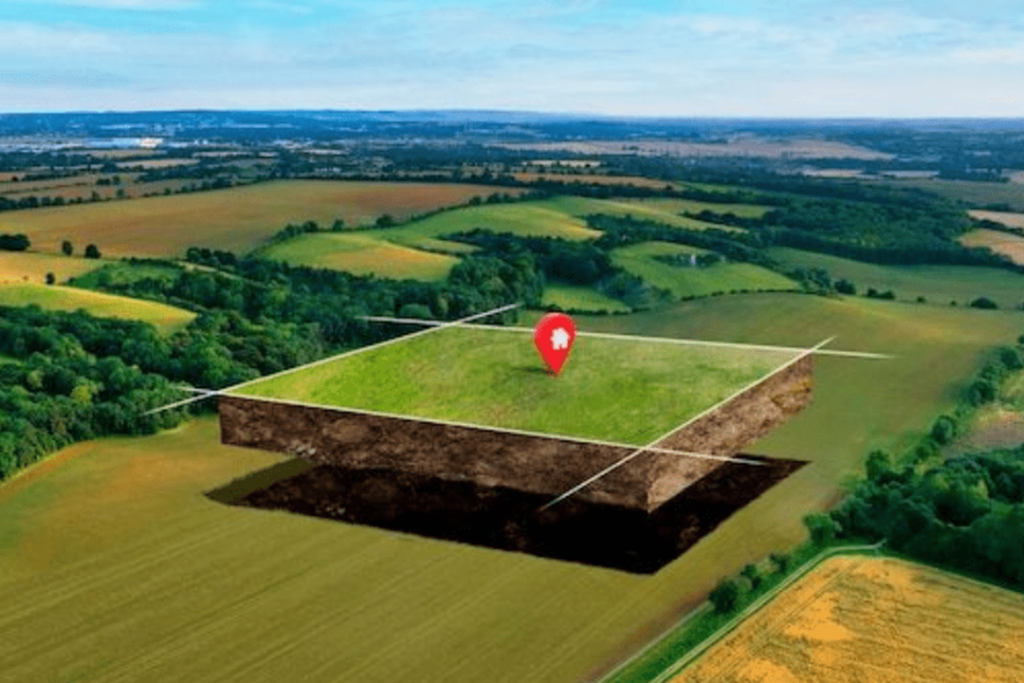Who Pays for a Land Survey – Buyer or Seller?

When buying or selling land, a land survey is often necessary to confirm property boundaries, identify easements, and ensure there are no encroachments. However, one common question that arises is: Who is responsible for paying for the land survey—the buyer or the seller? The answer depends on various factors, including local real estate practices, negotiations between the parties, and the terms outlined in the purchase agreement. In this blog post, we will explore the importance of land surveys, who typically pays for them, and considerations both buyers and sellers should keep in mind.

What is a Land Survey and Why is it Important?
A land survey is a precise measurement of a property’s boundaries, features, and improvements. Licensed surveyors use specialized tools to map out the land and provide legal documentation of its exact dimensions. Here’s why a land survey is crucial:
- Boundary Verification: It ensures that the property lines are correctly defined, preventing disputes with neighbors.
- Easements & Encroachments: The survey identifies any rights of way, utility easements, or structures that may encroach on the property.
- Zoning Compliance: Local zoning laws may require a survey before approving certain developments or land uses.
- Property Value & Use: Buyers can make informed decisions based on the land’s actual dimensions and conditions.
Who Typically Pays for a Land Survey?
The responsibility for paying for a land survey varies based on regional customs, market conditions, and individual negotiations. Here’s a breakdown of who might pay:
1. Buyer Pays for the Survey
In many real estate transactions, the buyer is responsible for obtaining a land survey. This is especially true when the buyer wants to ensure they are making a sound investment. Reasons a buyer might pay include:
- Lender Requirements: If the buyer is financing the purchase, their lender may require a survey to confirm property boundaries before approving the mortgage.
- Buyer’s Due Diligence: The buyer may want a survey for personal assurance that there are no boundary disputes or encroachments.
- Title Insurance Conditions: Some title insurance policies require a current survey to issue full coverage.
- Uncertainty About Property Lines: If the property has unclear boundaries or is in a rural area, a survey is often necessary for accurate land division.
2. Seller Pays for the Survey
In some cases, the seller may choose or be required to pay for the survey, especially in the following scenarios:
- Marketing Advantage: A seller who provides a recent land survey can reassure buyers and streamline the closing process.
- Legal Requirements: Some states or municipalities mandate that the seller provides a survey before selling the property.
- Contract Terms: If the purchase agreement stipulates that the seller must provide a survey, they will be responsible for the cost.
- Dispute Resolution: If there is a boundary dispute or uncertainty about the property lines, the seller may need to conduct a survey to resolve the issue before listing the land.
3. Shared Cost or Negotiation
In some transactions, the cost of the land survey is split between the buyer and seller. This often happens when:
- Both Parties Benefit: If both the buyer and seller have an interest in verifying the boundaries, they may agree to share the cost.
- Negotiation Terms: Some deals are structured in a way that allows the parties to negotiate survey expenses based on other concessions (e.g., the buyer agrees to a higher price in exchange for the seller covering the survey).
- Competitive Markets: In a seller’s market, buyers may agree to pay for the survey to make their offer more attractive. In a buyer’s market, sellers may agree to pay to secure a deal.
How Much Does a Land Survey Cost?

The cost of a land survey varies depending on factors such as property size, location, terrain, and the level of detail required. On average:
- Residential Property: $300 – $1,000
- Vacant Land (Smaller Lots): $500 – $1,500
- Larger Acreage: $1,500 – $5,000+
The complexity of the survey also affects pricing. A basic boundary survey is less expensive than a topographic or ALTA/NSPS survey, which provides more detailed information.
Should You Get a Survey Even If It’s Not Required?
Even if a survey isn’t legally required, it’s often a good idea to obtain one. Here’s why:
- Prevents Future Disputes: Clearly defined boundaries can prevent legal issues with neighbors.
- Helps with Future Sales: Having a recent survey can expedite the selling process when it’s time to resell.
- Identifies Hidden Issues: Easements or encroachments may not be obvious without a survey.
- Provides Peace of Mind: Buyers can be confident in their investment, knowing exactly what they’re purchasing.
Conclusion: Who Should Pay?
Ultimately, whether the buyer or seller pays for a land survey depends on the specifics of the transaction. In many cases, buyers cover the cost as part of their due diligence, but sellers may choose to pay to make their property more attractive to buyers. Sometimes, the cost is negotiated or split between both parties.
If you’re involved in a land transaction, reviewing the contract terms and discussing the matter with your real estate agent or attorney is essential. Understanding the role of land surveys and their importance ensures a smoother buying or selling experience, helping both parties make informed decisions.
Stay connected with us on https://www.facebook.com/offersforland/ for the latest updates and insights.


